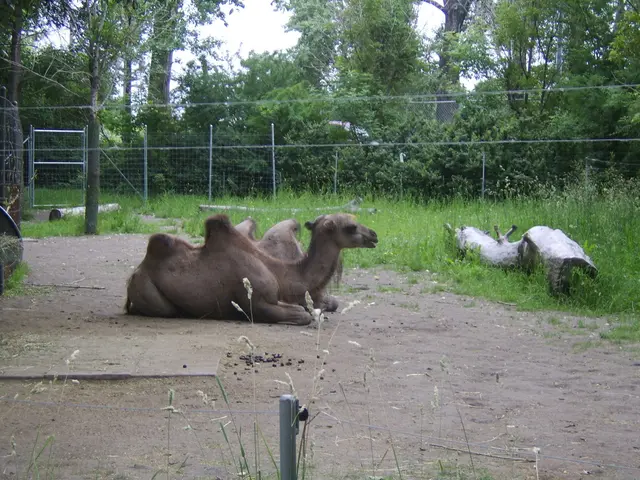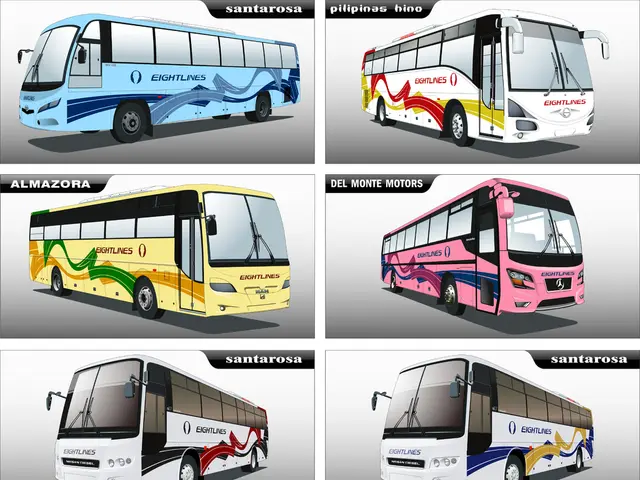Rebel Group M23 Allegedly Committing 'War Crimes' in Eastern DRC: Report by Amnesty International
In the eastern Democratic Republic of Congo (DRC), the M23 rebel group has been accused of grave human rights abuses against civilians by Amnesty International. These abuses reportedly include torture, killings, and enforced disappearances, with the organization stating that such acts violate international humanitarian law and could potentially amount to war crimes.
According to Amnesty International's statement on Tuesday, between February and April, researchers spoke to 18 people who had been detained by M23 in Goma and Bukavu, with many claiming they were held on accusations of supporting the Congolese army or government, for which no evidence was presented. Some detainees were not told why they were being held.
The rights group alleged that detainees were kept in overcrowded, unhygienic cells, lacking adequate food, water, sanitation, and medical care. Witnesses described prisoners dying due to these harsh conditions or acts of torture, as well as witnesses seeing fellow prisoners being tortured with wooden sticks, electric cables, or engine belts.
Disturbing testimony from former detainees includes descriptions of two detainees being killed with hammers and another being shot dead on the spot. Furthermore, relatives searching for missing individuals were often denied access to detainees by M23 fighters, actions that Amnesty deemed as forcible disappearances.
Amnesty International's regional director for East and Southern Africa, Tigere Chagutah, shared concerns about M23's treatment of detainees, stating that they brutally punish those they suspect of opposing them and intimidate others into silence. Chagutah also called for regional and international actors to pressure Rwanda to cease its support for M23.
The United Nations and the DRC's government have accused Rwanda of supporting M23 by providing arms and sending troops, but Kigali denies these allegations. Estimates suggest that about 4,000 Rwandan soldiers support M23. The M23 is one of approximately 100 armed groups fighting for control in the mineral-rich eastern DRC, bordering Rwanda.
Despite recent pledges by the Congolese army and the rebels to seek a truce, clashes have continued, and M23 previously threatened to advance as far as the capital, Kinshasa, over 1,600 kilometers away. The ongoing conflict has displaced millions of people, including over 100,000 this year alone, with humanitarian conditions remaining extremely critical.
Recent diplomatic efforts are underway to end the fighting and promote a peace agreement. In April, regional heads of state and government representatives met in Uganda, urging armed groups in the eastern DRC, including M23, to cease hostilities, and seeking to facilitate a peace process to stabilize the region. Negotiations aim to address human rights abuses, root causes of violence, and ultimately draft a peace deal to halt the conflict and improve humanitarian conditions.
- The breaking news about the M23 rebel group in the Democratic Republic of Congo (DRC) has sparked strong opinions, with Amnesty International accusing them of committing war crimes through grave human rights abuses against civilians.
- The ongoing conflict in the eastern DRC, fueled by groups like M23, has led to a General News crisis, as millions of refugees have been displaced due to war and conflicts, with over 100,000 displaced this year alone.
- Politics and international relations are at the forefront as the United Nations, the DRC's government, and Amnesty International call on regional and international actors to press Rwanda to cease its support for M23, an armed group accused of providing unhygienic, inhuman conditions for detainees and committing potential war crimes.
- In the war-and-conflicts section, diplomatic efforts are being made to end the fighting and promote a peace agreement, with regional heads of state and government convening to address human rights abuses, root causes of violence, and ultimately draft a peace deal to halt the conflict and improve humanitarian conditions in the eastern DRC.




